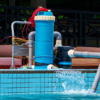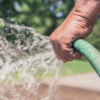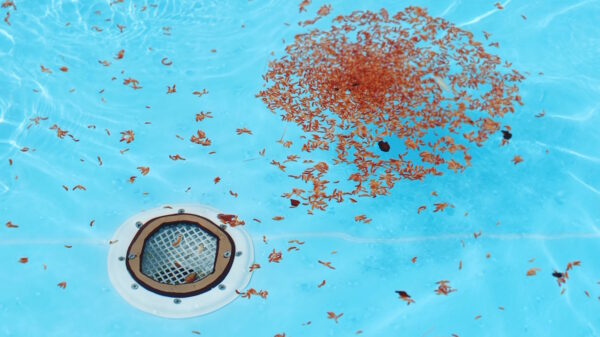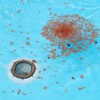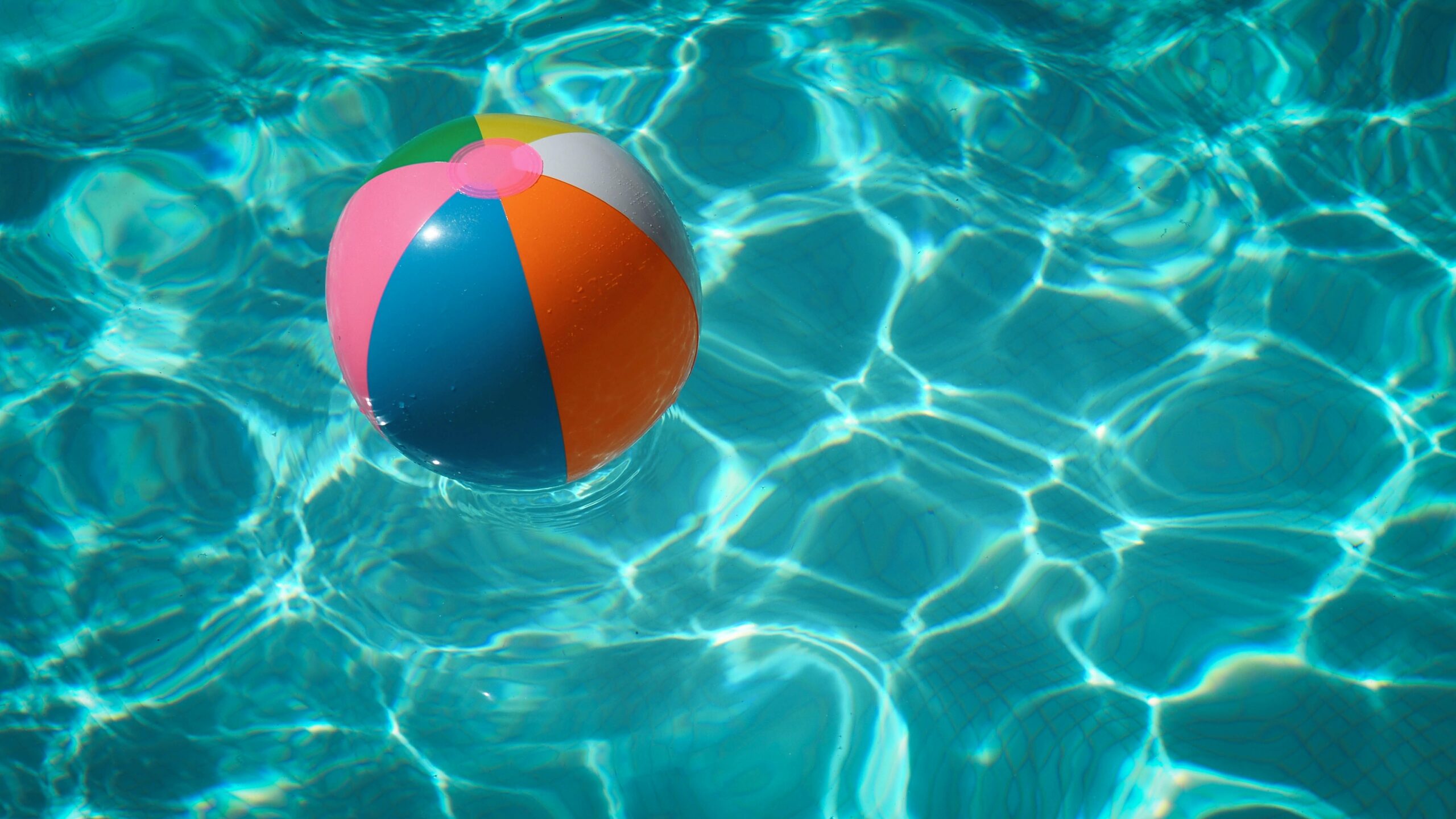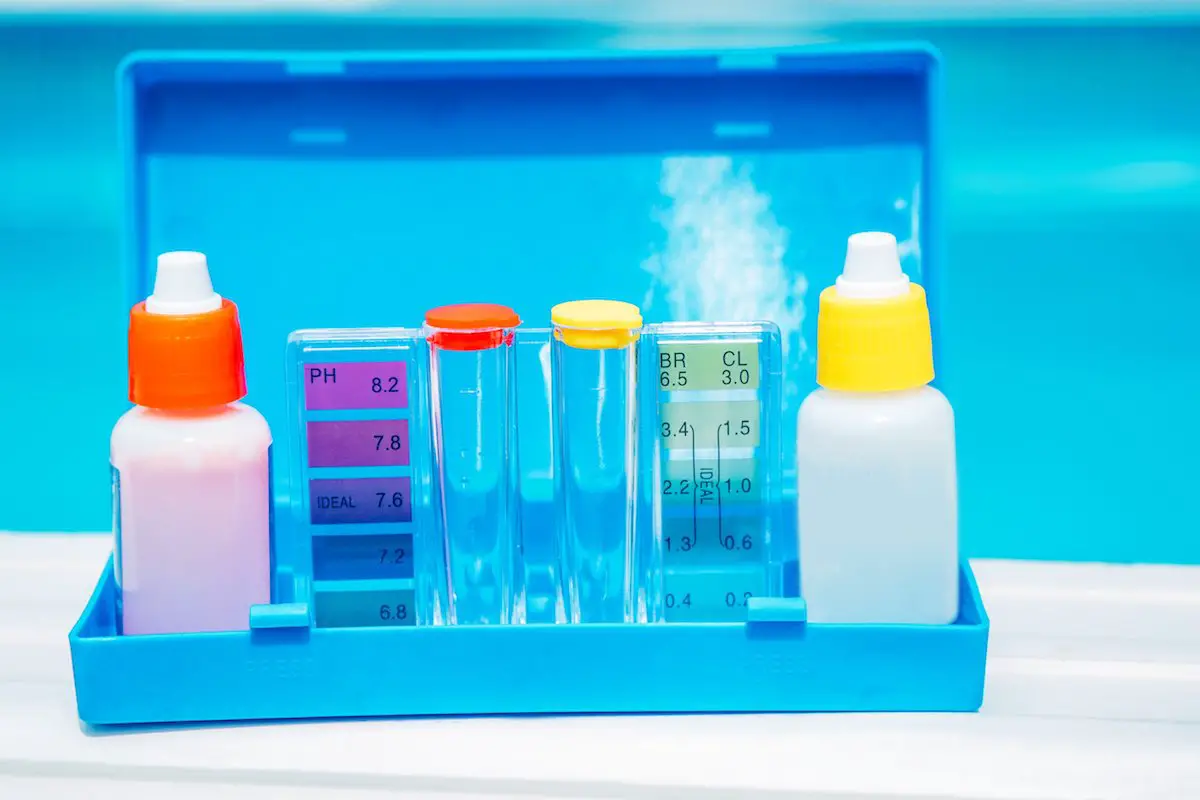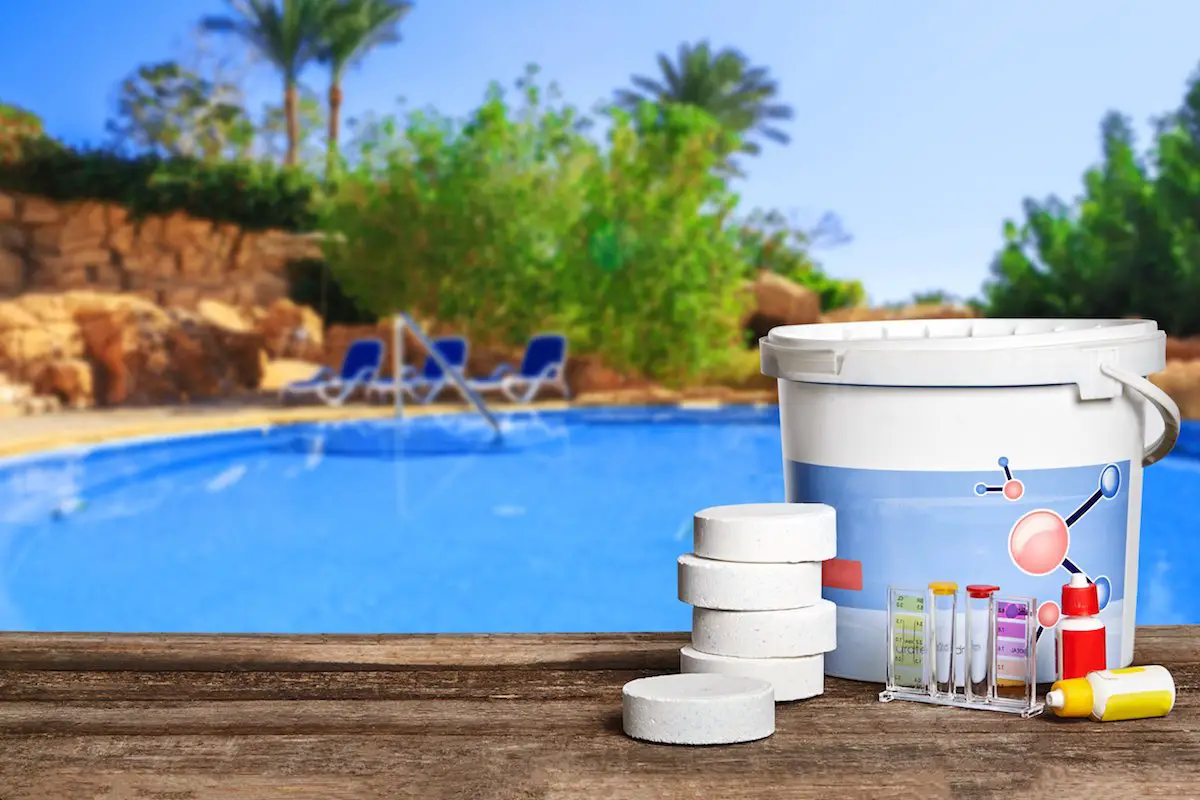Best Tips For Removing Metal Pool Stains
When you buy a house with an inground pool, one of your top priorities is cleaning it regularly. Of course, this includes cleaning the actual water in the pool, but it also means cleaning all of the surfaces surrounding the water. The last thing you want to see when you’re relaxing by the pool on a hot summer day are unsightly metal stains on its surface.
So, what are the best ways to remove metal stains in your pool? The best ways to remove metal stains in your pool include using both chemicals and pool stain removers. It is also important to take measures to prevent future staining.
Metal stains can happen if certain metals fall into your pool and their rust gets mixed in with sediment at the bottom of the tub. Then, as you pump water through your filtration system, they mix back up with it and leave marks on cracks or around skimmers along the sides of your pool – most commonly around steps leading down to them.
It’s hard not to think of a rusty car when you see this, but if your pool is clean and well-maintained, there’s no reason it should look like one.
What Causes Metal Stains in Pools?
Metal stains can be caused by a variety of metals – iron or steel being the most common culprits. If you have metal posts around your pool for support, perhaps surrounding a diving board area, these may rust over time and leave marks on the sides of your pool. They could even fall into the water and cause a similar effect beneath its surface as well.
Several other factors can contribute to metal stains in your pool including:
- Failing to treat pH levels properly. If you have too high-quality an ionizer, the metal particles may not be able to interact with each other because they’re being pulled apart too quickly. If this happens at the bottom of your pool, you’ll have rust build-up over time that leaves stains on your surface even if it’s clean.
- Leaving water out. If you leave a puddle of standing water somewhere near your pool long enough – for instance, after cleaning it – the same thing can happen.
- Using an iron filter. The filtration system in your pool can remove all types of metals from its water, but only if there are enough of them present. Without them, though, they could mix back into sediment suspended in the water and end up causing stains later down the road when more metals than usual fall into your pool.
What Tools Are Needed For Cleaning A Pool?
The tools that are needed for cleaning a pool vary depending on your specific needs at the time that cleaning must be done. If you have metallic stains present then you will need to use either a leaf net or skimmer net to remove these quickly and effectively before adding new water to your garden pond area.
Having one of these nets will speed up the cleaning process and make it much easier while also saving you plenty of time and effort in cleaning your swimming pool.
Please note that while cleaning out metal stains from a pool it is important not to use chlorine. This will only cause the metal particles to react and become stronger and more difficult to remove.
The Best Way to Clean Metal Pool Stains
If you’ve got metal stains in your pool, the first thing you need to do is clean it. You can try using any cleaning solution on the market for this purpose, but try using one with enzymes and bacteria. These components work by breaking down organic contaminants that are found in your pool water – algae being perhaps the biggest offender. This is what causes these stains in the first place.
Other cleaners may work just fine if you don’t have a particular problem with algae, but they won’t break down organic matter at all either way. The result will be similar if there aren’t enough metals present during cleaning to cause stains, but you still won’t be getting rid of the organic matter.
If you use a cleaning service, make sure they are experienced in cleaning pools with metal surfaces or saltwater systems. When hiring cleaning services, be sure to ask about chemical treatments that will help prevent metals from causing stains on your pool’s surfaces.
Removing the Metal Stains
After cleaning your pool to remove all of these contaminants, it should be safe for you to use a metal cleaning solution on any remaining stains. This usually means using chlorine-based cleaning solutions – either liquid or powder – because they’re designed specifically for this purpose.
Make sure that the metal cleaning agent is appropriate for use on your type of metal stain before pouring it into your pool, though.
How To Prevent Metal Stains in The Future
If you want to avoid having problems with metal stains in the future, there are many steps you can take. The first is cleaning your pool regularly to remove contaminants that may have collected over time, especially if you notice a build-up of any metals around skimmers or anywhere else that water comes out of the pool.
Another thing you can do is make sure not to dump large amounts of foreign objects into your pool. This would include cleaning tools for instance. Always install a filter system on it if possible.
Skimmers work well for this purpose, but an ionizer might also be a good idea depending on how much iron, in particular, has ended up in the water in the past. There’s no way to completely avoid metal stains unless you use deionized water in your pool, but cleaning it properly will make them less likely to appear even if they do occur.
7 Metal Stain Removal Tips for Pools
Here are our top seven tips for removing metal stains in your swimming pool:
1. Use Acid Wash
The first thing you can do is acid washing. This will effectively remove heavy metal contaminants and other decaying debris adhered to the side of your pool with little effort on your part.
Acid washing works best in new pools (were no calcium has yet bonded itself to any surfaces). Once calcium formations bond themselves to interior surfaces (such as plaster), acid washing will not be as effective.
2. Vacuum Often
If you want to prevent metal stains from reoccurring, cleaning and vacuuming the pool is a must. Don’t let gunk and dirt collect on surfaces or in corners. Get rid of particles that might cause stains by cleaning up the area with your vacuum cleaner before they have a chance to attach themselves to anything.
Be sure to clean metal surfaces like ladders, handholds, and rails thoroughly (especially if cleaning products were used on them), and pay attention to corners where dirt can build up more easily.
3. Balance pH Level
The pH balance in your pool water should be kept between 7.2 and 7.8 for the best results in cleaning and stain prevention. Metal stains will be more likely to appear if the pH of your water is off. Do whatever it takes to keep it within that range (testing and adding additives like soda ash or muriatic acid as necessary).
4. Clean with Non-Metal Products
When cleaning metal surfaces in your pool, use a cleaning product safe for those surfaces. There are cleaning chemicals made specifically for cleaning metals. You can buy these at any pool supply store or home improvements stores.
These chemical cleaners will prevent stains from occurring on the surface by cleaning off any particles before they can attach themselves.
5. Preventing Metal Stains with Treatment
If you don’t want to clean your pool yourself, there are cleaning services that will come out and handle maintenance for you. Adding treatment chemicals like sequestering agents to the water can prevent metal stains by preventing metals from attaching themselves to dissolved particles or other surfaces in the water.
Some of these treatments are made specifically to treat metal contaminants, so you don’t have to worry about buying general cleaning products instead of specific ones.
6. Using Saltwater Systems
Using a saltwater pool is an environmentally friendly way of cleaning your pool without causing damage. Chlorine is one of the leading causes of green pools, as well as metal stains, so using a salt system will not only prevent those stains from reoccurring but also keep your pool healthier for the environment.
7. Keeping Your Pool Clean
Once you have thoroughly cleaned your pool, make cleaning a priority. Check the pH level of the water regularly, and keep the chemicals balanced to prevent metal stains from filling back up over time. Finally, keep debris out of corners by cleaning them with your vacuum at least once a week. Cleaning is incredibly important!
In Conclusion
In cleaning a swimming pool you will need to make sure that it has been emptied and dried out properly as well as having all of the tools such as nets ready to use.
Once the cleaning has finished, make sure that freshwater has been added which has been treated with a de-chlorinating agent along with any other necessary chemicals for cleaning your garden pond.
By following these steps you should be able to successfully clean your pool and remove any metallic stains that may have appeared without too much difficulty or stress.
Please note that cleaning your swimming pool using these methods may take more than one day depending on the severity of the mess that needs cleaning up. But, all your elbow grease and patience will be well worth it once you see the results!




